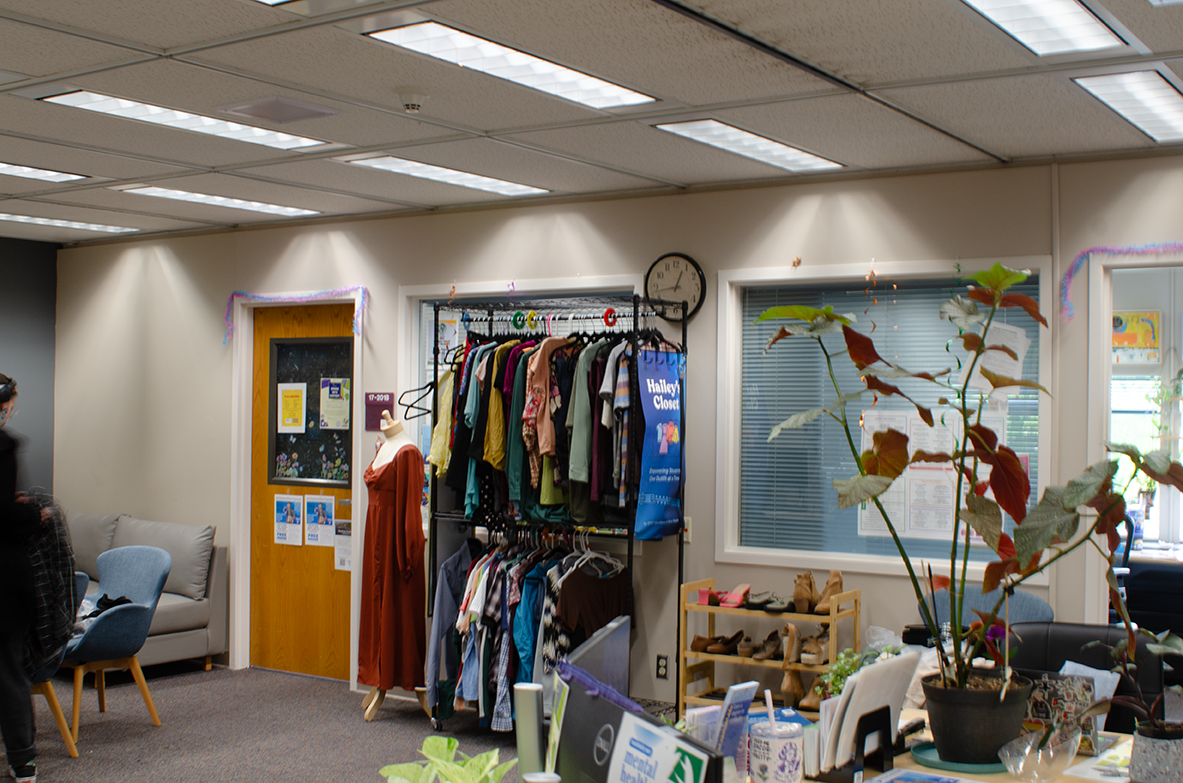As college students, there are many stressors that can influence one’s emotional state of being. Schoolwork, employment, or financial strain can cause difficulties with navigating life as a student and being more independent.
But many students may find solace in school itself, feeling that it gives them a sense of purpose. Ashley Tomlinson, business management major at SFCC, feels that school has given her something to fall back on.
“I would say for me, it literally has been school that’s been helpful, especially through my mom’s death,” said Tomlinson. “Learning is healthy, and expanding my mind is healthy.”
For parents on campus, tackling one’s mental health can present a challenge. Many students who are also parents may feel guilty missing out on time with their children, but Tomlinson has been able to turn this around into something more productive in regards to her 3-year-old daughter, Franklynn.
“I remind myself I’m teaching her how to be self-sufficient,” said Tomlinson. “How to go after what she wants, and I think that keeps me especially well balanced.”
For students like Ashley, being a parent provides a sense of purpose. Other college students, like Natalie Berry, business major at Eastern Washington University, find that simply getting out for some Vitamin D, can be especially helpful in uplifting her mood.
“I try to go for walks in the sunshine,” said Berry. “And I treat my cat, Gumball, like my child. Taking care of her gives me a reason.”
Berry said that a college itself can be helpful by recognizing the unique struggles of each student, taking into account when students need support and that providing space for support groups may be key to supporting students facing these challenges that can hinder one’s academic performance.
“I think that they should offer more support groups for students,” she said. “Taking into account when a student has difficulties that also affect their school work, or difficulty with an instructor.”
Berry also shared advice for fellow students who may be struggling with their own mental health.
“Keep going, you are going to graduate eventually,” she said. “ I honestly do think it gets better after college.”
For students at SFCC, there are many available supportive resources to help struggling students, and anyone in need of support.
The Counseling Center, located upstairs in Building 30 on SFCC’s campus, offers support such as educational resources, and mental health support. In addition, drop-in is available Mondays and Fridays.
Another spot any enrolled SFCC student can head to for support for academic, addiction, housing, clothing, and food insecurity concerns in the Basic Needs programs.
Kathy Albin, Director of Learning Support at SFCC, shared more about these programs and how they help students on campus.
“We want to holistically support students at SFCC,” said Albin. “We also have lots of homeless students on campus and we want to support all of them.”
Albin is enthusiastic and excited to assist students in any way she or other faculty can. She shared an exciting new development happening at SFCC, a Collegiate Recovery Center, the only one on any campus in eastern Washington.
“I have a lot of students who come to me struggling with addiction,” said Albin.
Additionally, Albin said much of the focus is aimed at the concept of “harm-reduction”. Harm-reduction refers to the goal of providing a community-centered approach to health services, reducing negative outcomes of drug use. Part of this development is to continue ways to ensure overdose-prevention measures are available to students free of charge. These measures would include: naloxone (Narcan), as well as fentanyl test strips.
“We are all humans,” she said. “We all need to help reduce the stigma.”
Albin shared advice for students who may feel embarrassment at reaching out for help. According to Best Colleges, 32% of college students are not comfortable asking for mental health support in particular.
“We are here experiencing this life journey together,” she said. “If we don’t have what you need, we have the means to get it.”
For questions or comments related to this story, contact the author at: sfcc.gus.dinsmore@gmail.com
